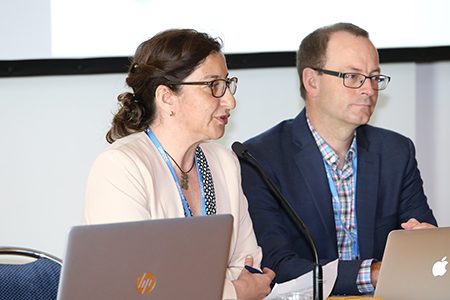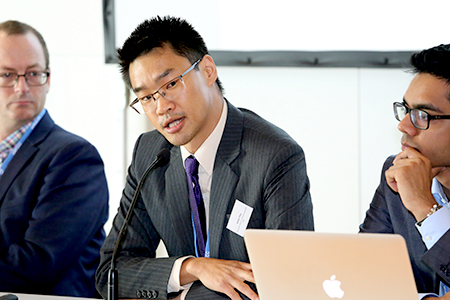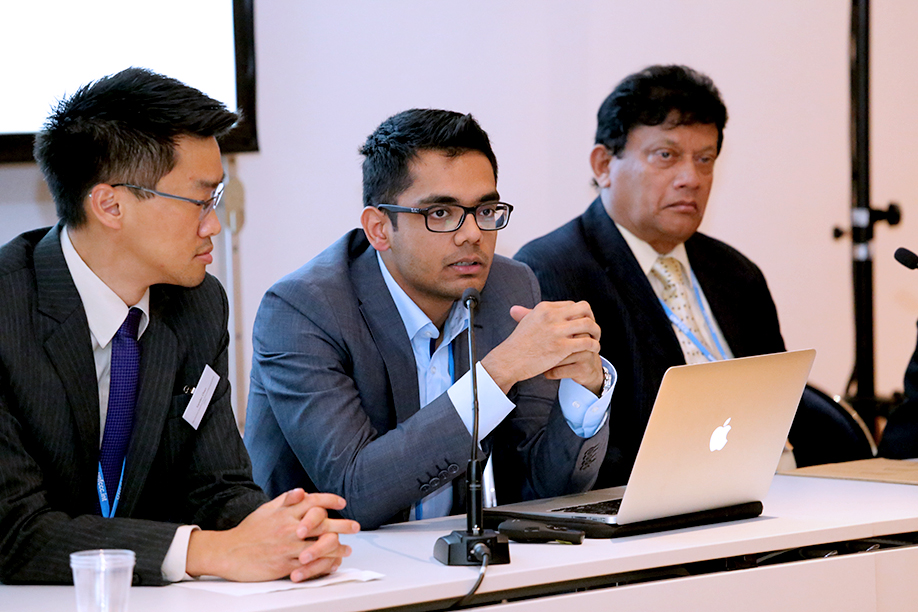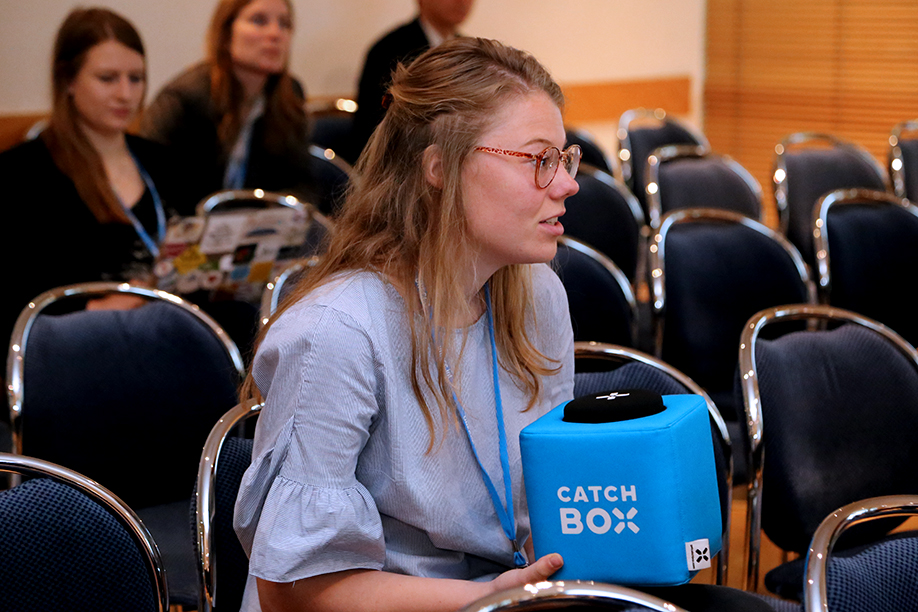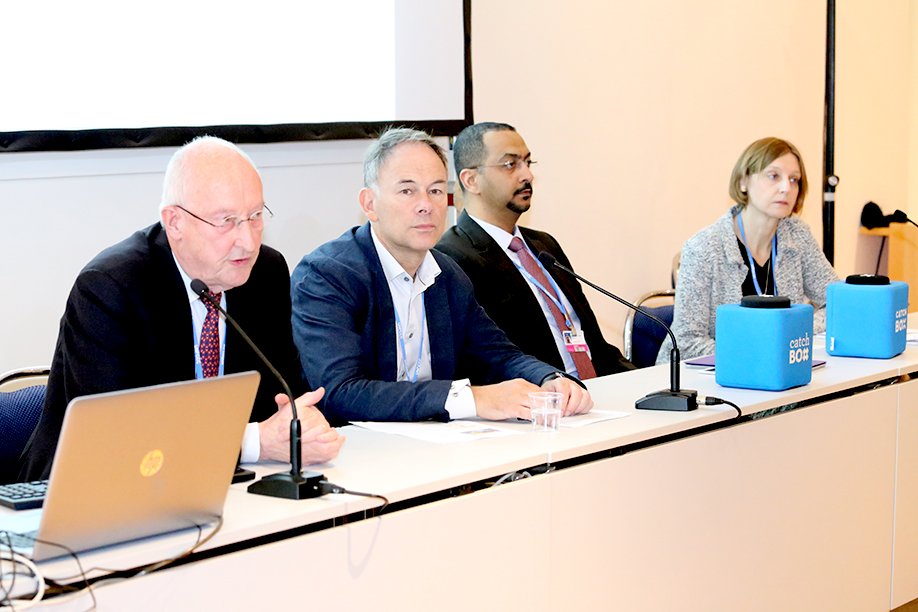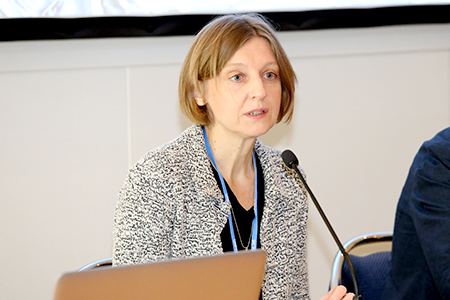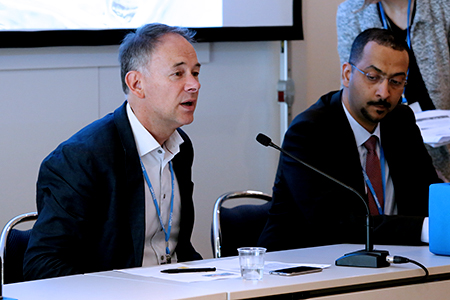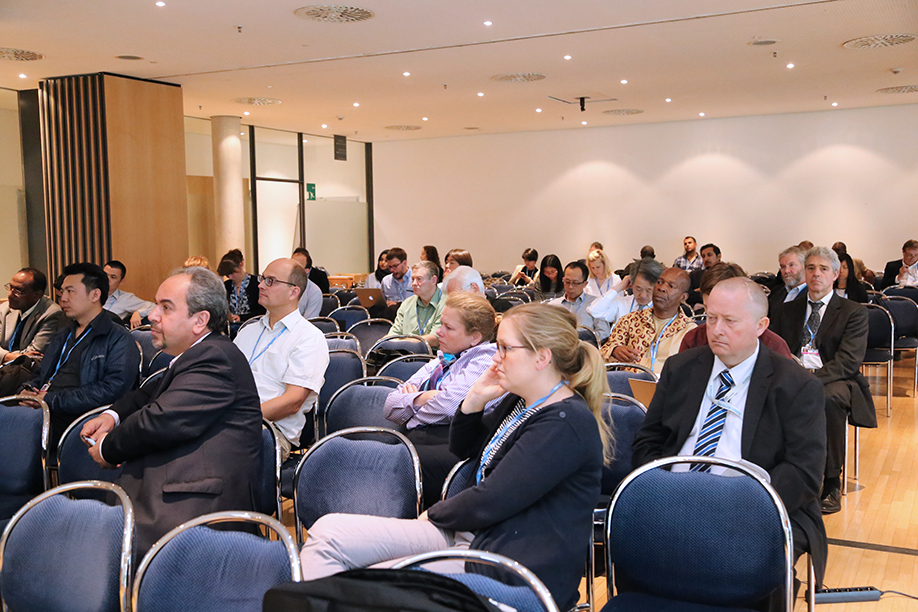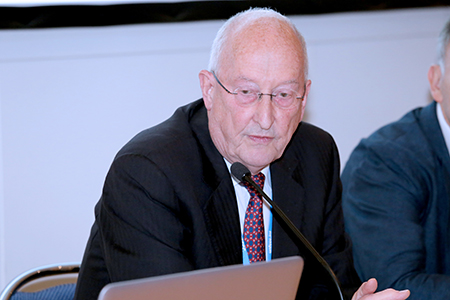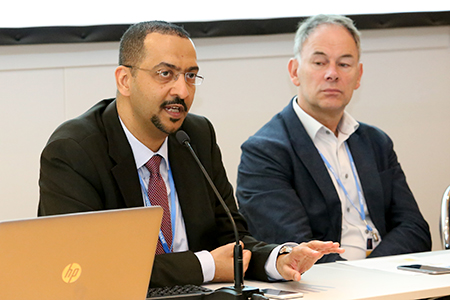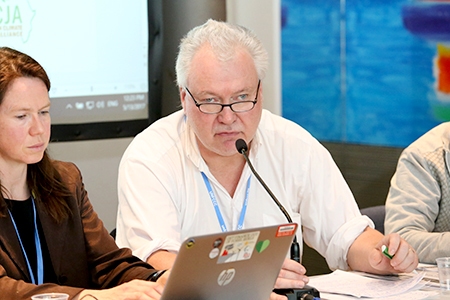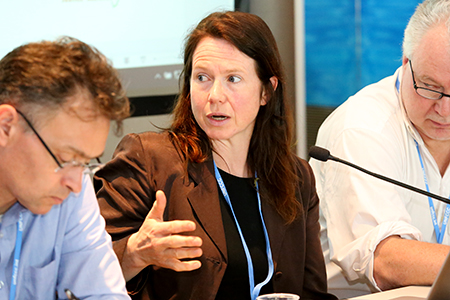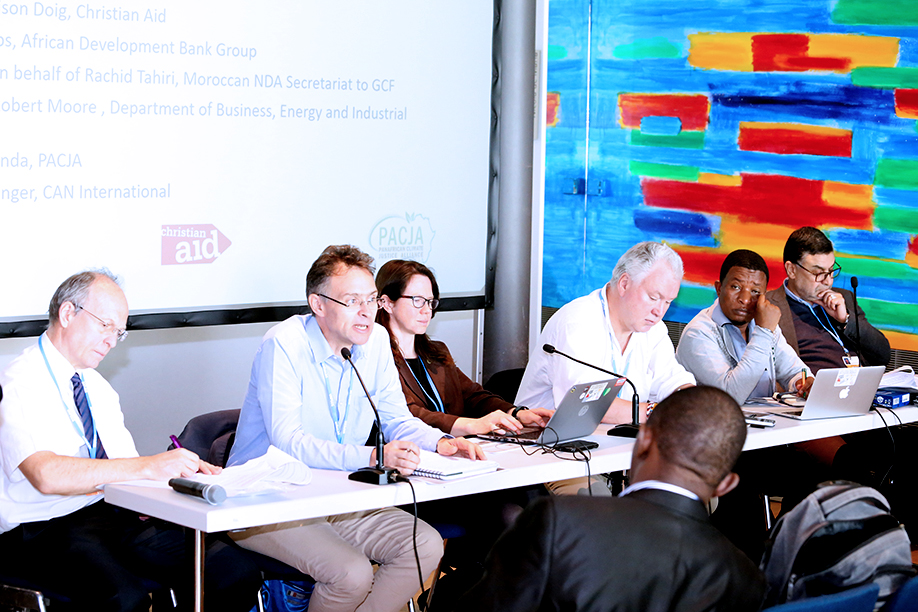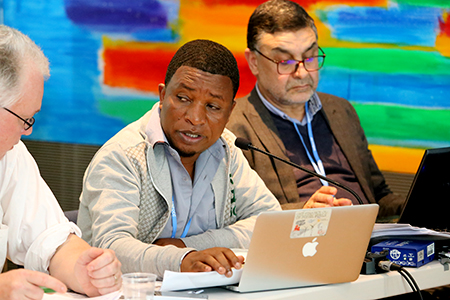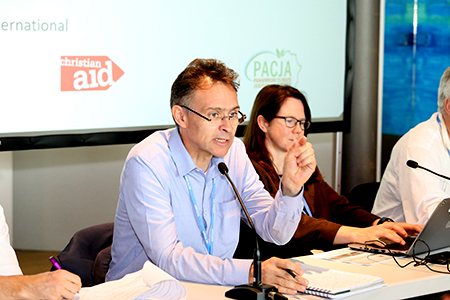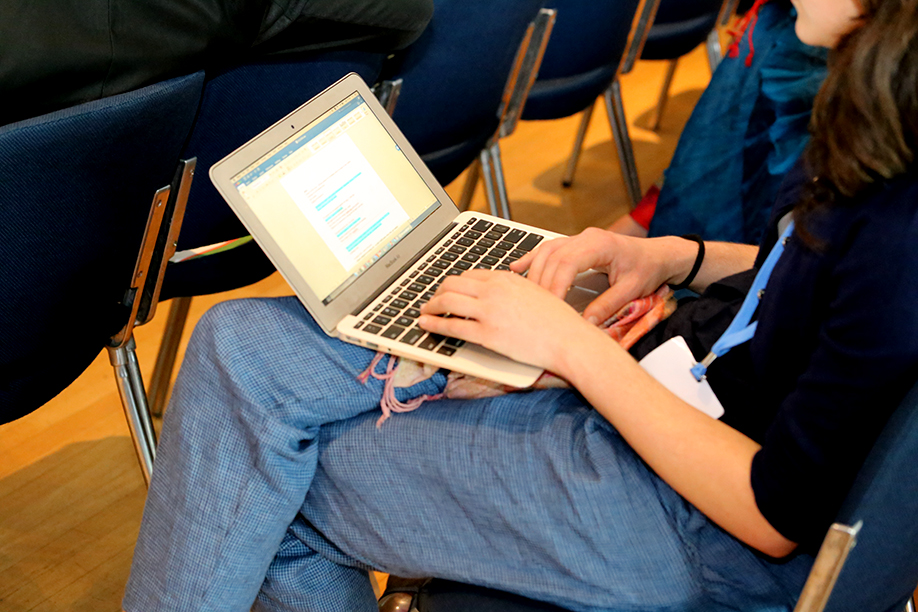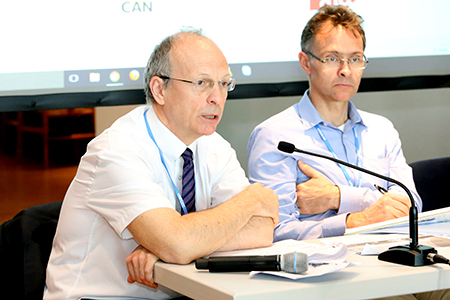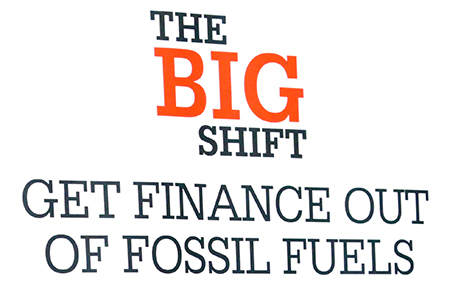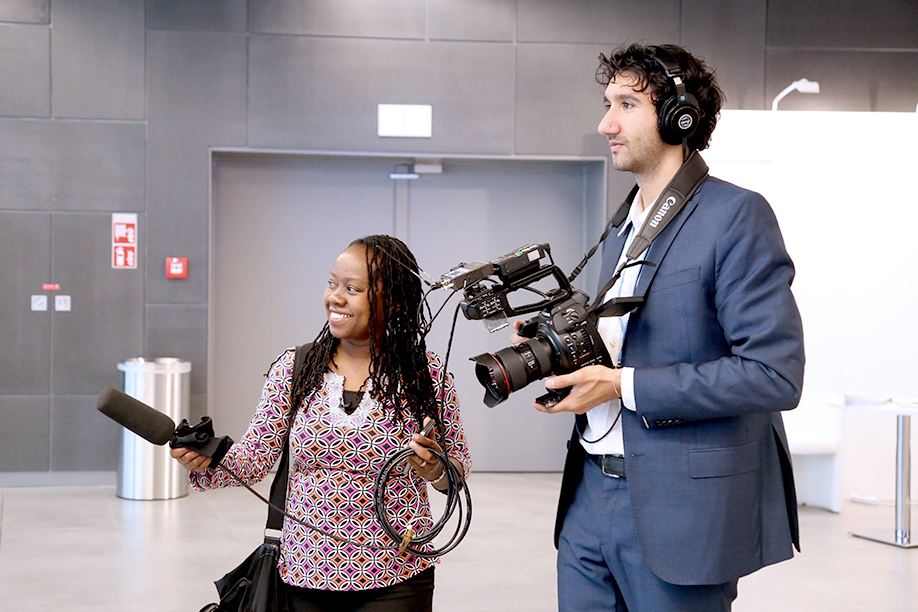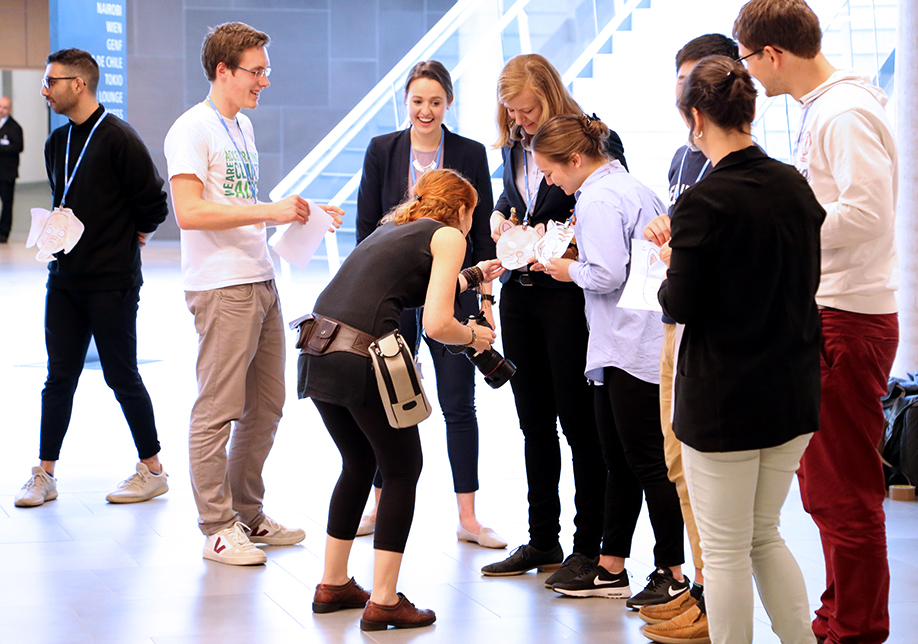Summary
The following side events were covered by ENBOTS on Saturday, 13 May 2017:
- Marrakech Partnership: Building Trust and Inclusiveness in Non-Party Stakeholder Engagement
- Global Status of Carbon Capture and Storage and the Progress Made over the Past Two Decades
- The Role of Development Finance Institutions in Supporting Client Countries to Deliver on 1.5°C and Sustainable Development Goal Commitments
IISD Reporting Services, through its Earth Negotiations Bulletin on the Side (ENBOTS) Meeting Coverage, is providing daily web coverage of selected side events at the Bonn Climate Change Conference, May 2017.
Photos by IISD/ENB | Angeles Estrada Vigil
For photo reprint permissions, please follow instructions at our Attribution Regulations for Meeting Photo Usage Page
Marrakech Partnership: Building Trust and Inclusiveness in Non-Party Stakeholder Engagement
Presented by York University and Colorado State University
In this side event, researchers and practitioners discussed the role of multi-stakeholder dialogues under the Marrakech Partnership for Global Climate Action, focusing on how forums for non-party stakeholders can help address the climate action ambition gap and link climate action to the Sustainable Development Goals (SDGs).
Idil Boran, York University, moderated the panel. She emphasized the need to reflect on the criteria and principles that guide multi-actor engagement in the climate policy process.
Noting that the UN Framework Convention on Climate Change (UNFCCC) currently registers 12,000 non-state actor commitments to climate action, Sander Chan, Deutsches Institut für Entwicklungspolitik (DIE), drew attention to the “enormous groundswell and enormous potential” of these actors. Observing that 70-90% of all climate actions are led by organizations based in the global North but implemented in the global South, Chan questioned why the international community is not acknowledging these disparities. He identified gaps in transnational climate governance, including: leadership, participation, implementation and performance.
Gamini Thilakasiri, Ministry of Agriculture, Agrarian Development, Irrigation, Industries and Environment, Western Province, Sri Lanka, stressed that every nation’s stability, security and prosperity is threatened by climate change. Describing the journey to a stable climate as “hard and long,” he emphasized that regional governments can make major contributions towards the achievement of climate goals and the SDGs at the grassroots level.
Aniruddh Mohan, Tandem Research and the Wuppertal Institute, concentrated on the crucial role that non-state actors play in fostering equity and trust in transnational governance after the Paris Agreement. Observing that climate change is now perceived as a “system-wide problem” but debates about equity remain stuck “in the old framework,” he called for new paradigms for discussing equity. Mohan also stressed the need for linkages with other transnational regimes, remarking that equity cannot be solely negotiated within the “silo” of the UNFCCC.
Kenneth Shockley, Colorado State University (CSU), asked how the international community can continue to develop the concept of “working together.” He pointed to transdisciplinary models in ecological restoration and suggested that building trust and inclusiveness requires “ongoing adaptive measures.” Shockley also recommended models of “collaborative problem formulation” that allow civil society to participate in the process of problem framing.
During the ensuing discussion, participants addressed, inter alia: the sustainability of grassroots programmes for climate action in light of capacity challenges; the role and challenges of monitoring in polycentric governance structures; and the underrepresentation of non-state actors in developing countries.
(L-R): Idil Boran, York University; Kenneth Shockley, CSU; Aniruddh Mohan, Tandem Research and the Wuppertal Institute; and Gamini Thilakasiri, Ministry of Agriculture, Agrarian Development, Irrigation, Industries and Environment, Western Province, Sri Lanka
Idil Boran, York University, stressed that the participation of non-party stakeholders is critical to building trust and inclusiveness in the UNFCCC process.
Sander Chan, DIE, highlighted interconnections between the Paris Agreement and the SDGs.
(Aniruddh Mohan, Tandem Research and the Wuppertal Institute (center), observed that, in the absence of sanctions and incentives, “notions of trust and norms will hold us together.”
During the discussion, Carmen Vermeer holds the "catch box," a roving microphone.
Contact:
-
Idil Boran | iboran@yorku.ca
Kenneth Shockley | kennethshockley@gmail.com
More Information:
Global Status of Carbon Capture and Storage and the Progress Made over the Past Two DecadesPresented by the Global Carbon Capture and Storage (CCS) Institute
This side event, moderated by David Hone, Shell International, provided an update on the potential of CCS to help keep the global temperature rise to below 2°C above preindustrial levels. Hone highlighted CCS as “critical technology” to meet the goals of the Paris Agreement, noting that, for many people, “the penny hasn’t dropped yet.”
John Scowcroft, Global CCS Institute, introduced his organization and outlined the global status of CCS in 2016. Noting that fossil fuel demand, while diminishing in percentage terms, has been growing in absolute terms, he emphasized that CCS is an inherent part of a low-emissions future. He said that CCS is critical in a portfolio of low-carbon technologies, and warned that mitigation costs more than double in scenarios with limited CCS availability. Scowcroft also underscored the need for strong policy to drive investment as CCS “must be afforded policy parity.”
Ellina Levina, International Energy Agency (IEA), presented on an IEA report titled ‘20 years of CCS: Accelerating Future Deployment.’ She identified the need to push all available technologies to the maximum potential, and noted that CCS “has come a long way despite opposition, and lack of support and understanding.” Among key lessons from the past 20 years, Levina highlighted that: policy support is critical for CCS development; early opportunities for CCS deployment exist but must be cultivated; CO2 storage must come first; the role of CCS goes well beyond a “clean coal technology”; and community engagement is essential.
Arafat Al Yafei, United Arab Emirates (UAE), introduced Al Reyadah, the first carbon capture company in the Middle East. Noting that all of Al Reyadah’s projects are commercially viable, he presented on the company’s first project with Emirates Steel involving enhanced oil recovery through the injection of CO2 underground. Al Yafei observed that, even though it is not a full carbon capture project, 60% of injected CO2 remains underground. Among regional challenges to CCS deployment, he highlighted the need for a greater number of projects and for financial and policy support from governments.
Hone addressed the role of CCS in the energy transition and pathways to net zero emissions. Noting that the energy sector is comprised of fossil fuels, biomass and no-emission sectors, such as renewables, he explained that CCS can make the biomass sector a negative emissions sector, helping achieve net zero emissions by compensating for the fossil fuels sector. He called for catalyzing CCS through: targeted policy mechanisms; recognition of the value of CCS for society; and development of CO2 storage.
In the ensuing discussion, participants addressed, inter alia: possible risks and uncertainties associated with CCS projects; knowledge sharing; the CCS value chain; the amount of energy used to capture and store a ton of CO2 using various technologies; and the long-term role of CCS in achieving net zero emissions.
(L-R): John Scowcroft, Global CCS Institute; David Hone, Shell International; Arafat Al Yafei, UAE; and Ellina Levina, IEA
Stressing the importance of monitoring and companies’ liability, Ellina Levina, IEA, noted that there is a 99% chance that captured carbon will stay where it is stored.
David Hone, Shell International, pointed out that CCS projects are characterized by high confidence and low risk levels.
Participants during the side event
John Scowcroft, Global CCS Institute, observed that CCS is accepted in the Clean Development Mechanism and by the Green Climate Fund as an “appropriate technology.”
Arafat Al Yafei, UAE, highlighted the need to translate CO2 from waste to commodity.
Contact:
-
Mark Bonner | mark.bonner@globalccsinstitute.com
More Information:
The Role of Development Finance Institutions in Supporting Client Countries to Deliver on 1.5°C and Sustainable Development Goal CommitmentsPresented by the Climate Action Network, Christian Aid and the Pan African Climate Justice Alliance
This panel heard discussions on the role of development finance institutions (DFIs) in enhancing ambition towards the 1.5°C goal. Alison Doig, Christian Aid, moderated the event.
Gareth Phillips, African Development Bank (AfDB), highlighted that the Bank is seeking to address climate change at both the “strategic” and the project levels. The former, he noted, comprises macro-level planning in country strategy papers, while the latter includes tools for climate safeguards screening, greenhouse gas accounting and climate finance tracing.
Said Chakri, Association des Enseignants des Sciences de la Vie et de la Terre – Maroc (AESVT Maroc), introduced Morocco’s Nationally Determined Contribution (NDC), which comprises both unconditional objectives and goals whose achievement is conditional on obtaining the necessary finance. He noted the key role of DFIs in realizing Morocco’s Ouarzazate solar project, and recommended that DFIs replicate this successful financing approach to support other mitigation opportunities identified in Morocco’s NDC.
Peter Betts, Department of Business, Energy and Industrial Strategy, UK, outlined his country’s overall approach to climate finance and its work with multilateral development banks. He underlined the need to invest finance strategically to enable it to be “transformational.”
Mithika Mwenda, Secretary General, PACJA, expressed strong concerns about the “encroachment” of the private sector and banks on climate change work. Among other issues, he noted the fact that DFIs will not invest where there is no profit to be made and a disregard for the need for free, prior and informed consent of indigenous peoples when investment decisions are made. He called for standards and guidelines to ensure DFIs make a positive contribution to addressing climate change and reaching the most vulnerable.
Stephan Singer, Climate Action Network (CAN) International, underscored the need for public banks to take the lead in steering the world away from fossil fuels if the private sector is to follow. He said that, by 2020, all financial public institutions should cease any support for fossil fuels and nuclear energy, and redirect investment to renewable energy, energy efficiency and energy access for the poor.
In the ensuing discussion, participants raised, inter alia: the fact that there are different types of “green bonds,” some of which support “clean coal”; how to differentiate between development and adaptation finance because “good development finance takes into account adaptation needs”; how to address the social implications of large-scale hydropower projects, including the fact that funding goes to “big industry” instead of local communities; and the fact that the AfDB is technology-neutral and “responds to demand.”
Stephan Singer, CAN International, stressed that “all is nothing if we don't phase out fossil fuels by 2050 at the latest.”
Alison Doig, Christian Aid, underscored the need to deliver on 1.5°C and Sustainable Development Goal commitments in tandem.
(L-R): Peter Betts, Department of Business, Energy and Industrial Strategy, UK; Gareth Phillips, AfDB; Alison Doig, Christian Aid; Stephan Singer, CAN International; Mithika Mwenda, Secretary General, PACJA; and Said Chakri, AESVT Maroc
Mithika Mwenda, Secretary General, PACJA, expressed concerns about international “interferences” in the Africa Renewable Energy Initiative, which “make us worry whether there is any commitment to help Africa address energy poverty and climate change.”
Gareth Phillips, AfDB, said NDCs and long-term strategies assist the bank in ensuring states take climate change considerations into account in development planning.
Peter Betts, Department of Business, Energy and Industrial Strategy, UK, suggested that, “despite what is often said in negotiations,” most adaptation spending will take place in the private sector and stressed the need to improve understanding of how this should be done.
Contact:
-
Mohamed Adow (Organizer) | madow@christian-aid.org
Fathiya Abdulmajid (Organizer) | fmajidalbakry@yahoo.com
More Information:
-
http://www.christianaid.org.uk/images/financing-our-future-sept-2016.pdf
http://www.pacja.org/index.php/en/
Around the Venue

